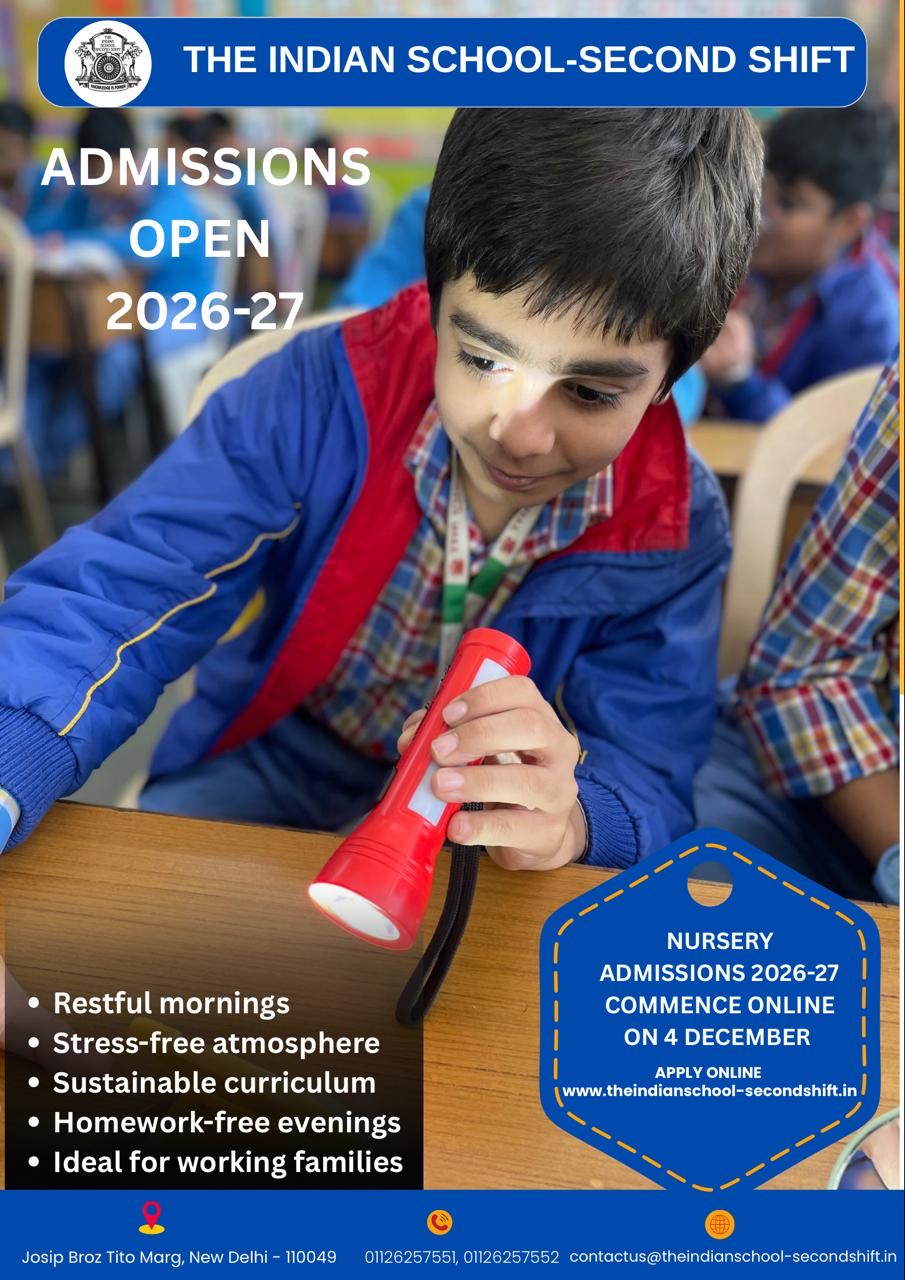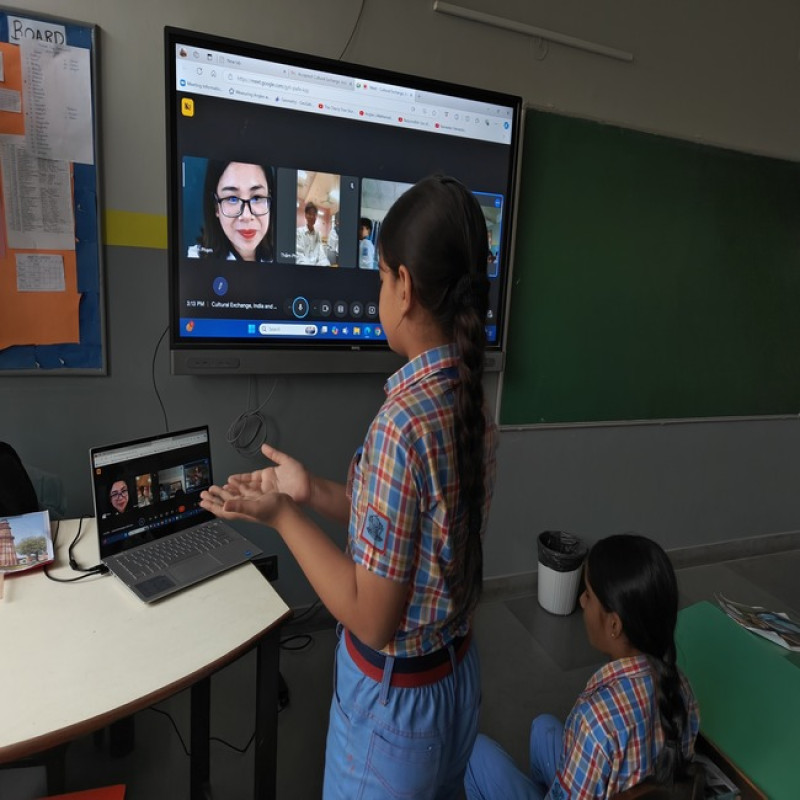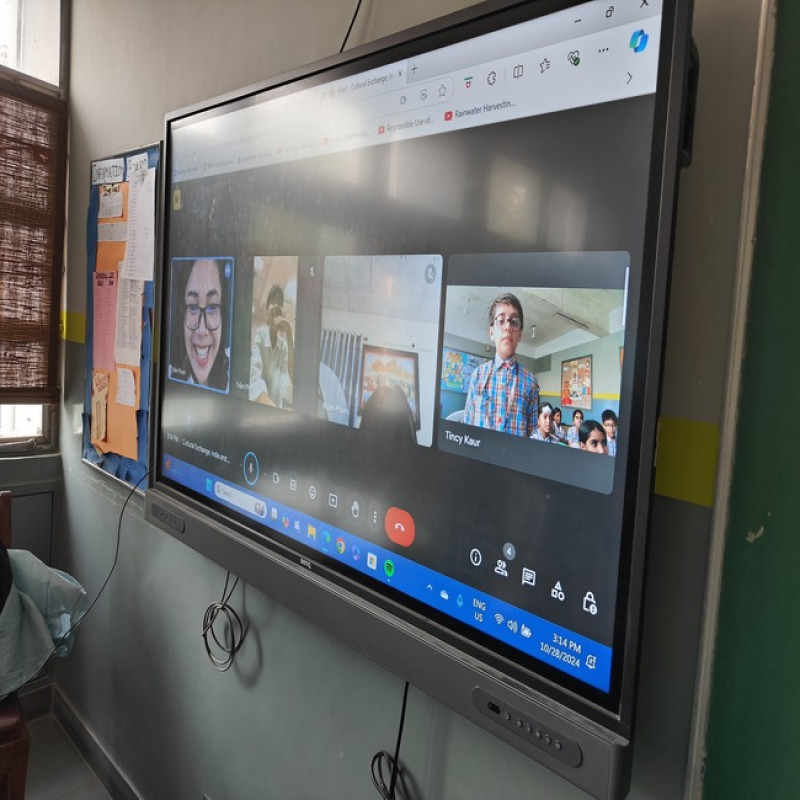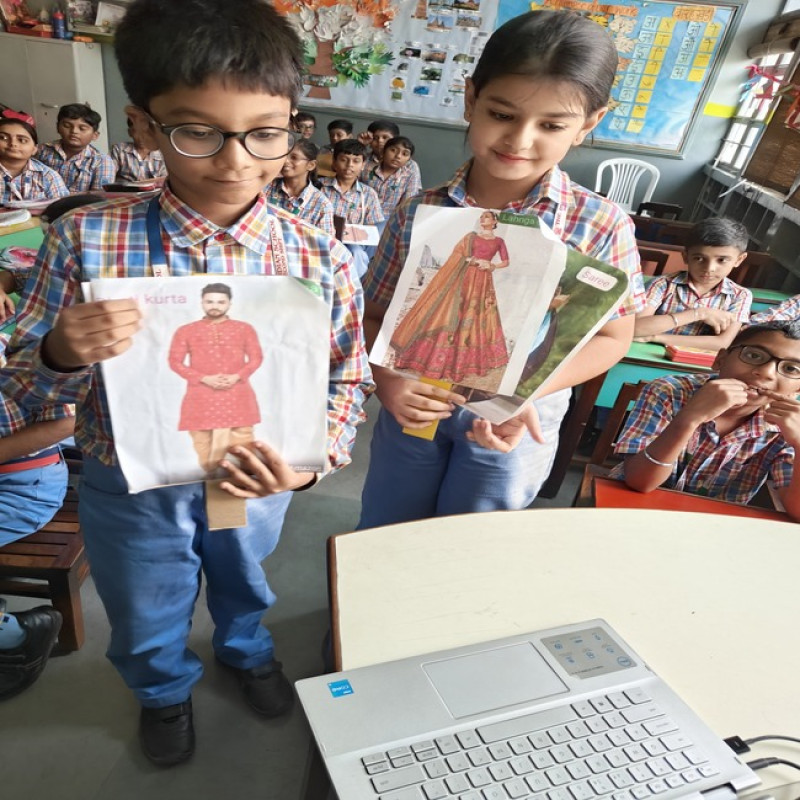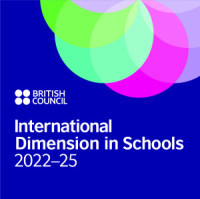Class 5B interacts with peers in a Vietnam school
On October 28, 2024, the students of class 5B, along with their class teacher, Ms Tincy Kaur, participated in an enriching Skype session with Pham Tham, an educator at Phuxuyen A, and her students in a Vietnam school. The aim of the session was to foster cultural exchange between peers in India and Vietnam.
The discussion focussed on cultural traditions, culinary practices, and the significance of the Tet holiday in Vietnam. The session commenced with traditional greetings from both sides. After the ice breaker, the students on both sides shared insights about their way of life with placards and content.
Both groups introduced their respective cultures through presentations. Our students highlighted festivals like Diwali and Holi, emphasising the themes of light, colour, and togetherness. Meanwhile, the partner school discussed Tet, the Lunar New Year, symbolising renewal and family unity. They also explained the customs surrounding Tet, including family gatherings and honouring ancestors.
Both groups also shared insights of their culinary heritage. Our students showcased popular dishes like samosa, gulab jamun, and various regional cuisines, emphasising on the various distinctive spices and flavours. They also spoke about traditional Indian attire such as the dhoti kurta and the saree.
The Vietnamese students were mesmerised by pictures of Indian monuments such as the Taj Mahal, the Qutub Minar, and India Gate, expressing their desire to visit India for a firsthand experience.
The partner school described their traditional cuisine such as pho and banh chung, discussing the importance of fresh ingredients and herbs. The use of rice in both cuisines was noted as a common element. The partner school also described Tet preparations, including cleaning the home, buying new clothes, and the lucky money tradition where elders give money as gifts to younger family members, as well as cooking special foods. Comparisons were drawn with Indian festivals, particularly the emphasis on family and feasting, central to celebrations like Diwali.
Later, in an interactive Q&A segment, the students exchanged questions about each other's cultures. This fostered a deeper understanding and curiosity about traditional practices and modern influences. The session was a successful platform for cultural exchange, enhancing students' understanding of each other's traditions and culinary practices. Both groups expressed interest in future collaborations and reluctantly bid adieu with a promise to meet again soon.

